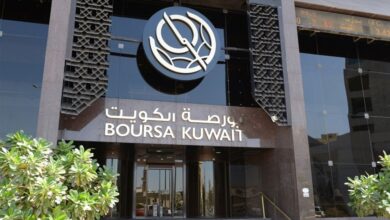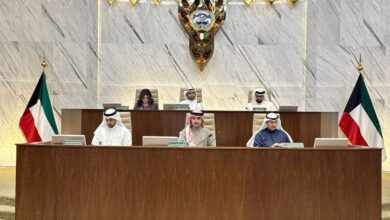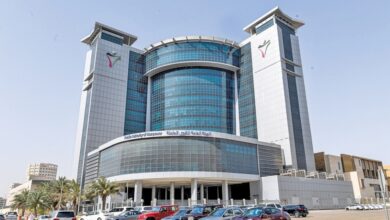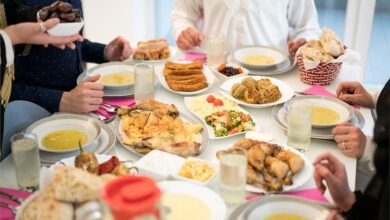Kuwait and France: A Generational Partnership, a Legacy Built for Future Generations

By Tareq Yousef AlShumaimry
Former Secretary-General of the Commercial Arbitration Centre of the Gulf Cooperation Council
The official visit of His Highness the Amir Sheikh Mishal Al-Ahmad Al-Jaber Al-Sabah to the French Republic on Sunday, 13 July will mark a historic milestone in relations between the two friendly countries. The visit highlights the robust diplomatic ties and ongoing cooperation and coordination between Kuwait and France, and comes at a time when the region is undergoing profound geopolitical and economic transformations.
The visit of His Highness the Amir, which coincides with the celebrations being held to mark the 236th anniversary of Bastille Day, the French National Day, underlines the generational partnership, trust, and solidarity that transcends geographic borders. The visit also reflects the aspirations on both sides to expand bilateral ties and overcome challenges in various fields, as well as build a legacy of cooperation and shared vision for future generations.
During the visit, His Highness the Amir and French President Emmanuel Macron are slated to preside over the signing of several memoranda of understandings (MoU) in various domains. France is a major investor in Kuwait’s energy, infrastructure, transport, health, and cosmetic sectors, with the number of French companies operating in Kuwait accounting for nearly half of all European companies.
The diplomatic relationship between Kuwait and France is rooted in mutual respect, strategic interests, and a shared commitment to international peace and security. Over the decades, bilateral ties have developed across political, economic, military, and cultural dimensions, creating a partnership that continues to evolve.
France was among the first Western nations to establish diplomatic relations with Kuwait, officially recognizing the country shortly after its independence and deputing an envoy to Kuwait in August1961, and formalizing diplomatic ties in 1967. This early recognition laid the foundation for a long-standing relationship built on trust, cooperation and friendship that has withstood the tests over the decades.
One of the most defining moments in Kuwait–France relations came during the 1990 Iraqi invasion of Kuwait. France was a key member of the international coalition led by the United States to liberate Kuwait in 1991 under Operation Desert Storm. France deployed troops and military assets, demonstrating strong support for Kuwait’s sovereignty and international law.The pivotal stance of support by France significantly strengthened bilateral relations and earned the French Republic enduring goodwill among Kuwaitis.
Following Kuwait’s liberation, France played an active role in reconstruction efforts and further military cooperation. Today, Kuwait eyes France as a strategic ally in its defense. French defense equipment remains a key component of Kuwait’s advanced weapon systems, including fighter jets, armored vehicles and artillery systems.
The strategic relations in defense have been cemented through several treaties on military training and joint maneuvers, as well as the exchange of technical and tactical expertise. In recent years, France has supported efforts to enhance regional security and counterterrorism, aligning with Kuwait’s efforts to serve as a mediator and humanitarian actor in the Middle East.
Kuwait and France have maintained robust economic ties, particularly in energy, defense, infrastructure, and luxury goods. French companies such as TotalEnergies, Airbus, and Bouygues have had long-standing operations in Kuwait. Kuwait, through its sovereign wealth fund—the Kuwait Investment Authority (KIA)—has made substantial investments in France, particularly in real estate, finance, and industry.
The Franco-Kuwaiti Economic Forum and various bilateral agreements have further facilitated trade, investment, and technology exchange between the two nations. The economic partnership was cemented most recently with Kuwait’s participation in the ‘Gulf Vision 2025; conference, which was sponsored by President Macron and served as a forum for sharing economic visions that contribute to concrete projects, and exploring new opportunities in clean energy, artificial intelligence, and smart infrastructure. France exports nearly US $1 billion annually to Kuwait—mainly industrial machinery, steel, medical equipment, plastics, and vehicles. Kuwait’s exports are modest at around $17 million, mostly plastics and precious metals.
France is the first European investor and the eighth largest global investor in Kuwait, with trade exchanges focused on energy, technology, and compatibility; cooperation in airport development; and cooperation in renewable energy including green hydrogen. Kuwait is keen to diversify its economy and reduce its dependence on oil through French investment in creative and digital fields, with France benefiting from Kuwaiti financial leadership and Kuwait from French innovative technologies and expertise.
In the health sector a delegation from Nice University visited Kuwait and held talks with health authorities on enhancing cooperation and exchange of expertise. More recently, in February this year, Health Minister Dr. Ahmad Al-Awadi signed a MoU with Gustave Roussy Hospital to open the Gustave Roussy Precision Medicine Hub in Kuwait this year; to enhance healthcare and staff training practices; and to develop joint research programs.
France’s influence is also visible in Kuwait’s cultural landscape. The Institut Français in Kuwait promotes the French language and culture through language courses, artistic exchanges, and academic programs. French is the thrid most spoken language in Kuwait after Arabic and English. Many Kuwaiti students pursue higher education in France, while French educational institutions operate in Kuwait.
Cultural diplomacy has been a soft power tool in strengthening people-to-people ties, with exhibitions, film festivals, and heritage initiatives enriching bilateral understanding.
Kuwait–France relations are characterized by trust, cooperation, and shared values. Rooted in historical solidarity and strategic alignment, the partnership continues to expand into new areas, including renewable energy, innovation, and sustainable development. As global challenges evolve, both countries remain committed to working together to promote peace, prosperity, and mutual respect on the international stage.
The visit of His Highness the Amir to France, is not to a destination, but rather marks a milestone that heralds the beginning of a new decade of commitment. The long-standing bonds of friendship based on mutual respect, trust, and shared experiences, is translated into tangible achievements on the ground, and it is a model of partnership to be emulated.
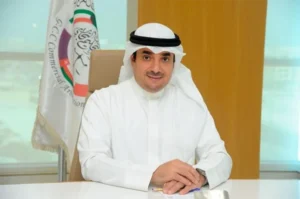
Tareq Yousef AlShumaimry, served as Chairman of the Finance Committee and Chairman of the General Budget Committee of the Permanent Court of Arbitration in The Hague (PCA) and an observer in the Administrative Council of the Court and the Consular at International Court of Justice (ICJ) and the Embassy of the State of Kuwait in the Netherlands during this period from 2013 to 2020. Email: tareq@alshumaimry.com







